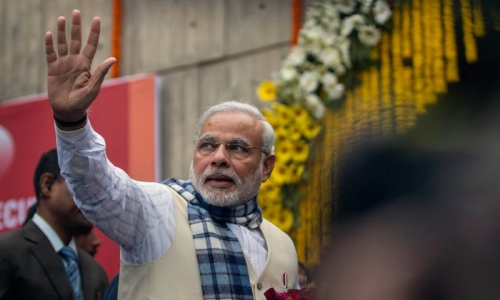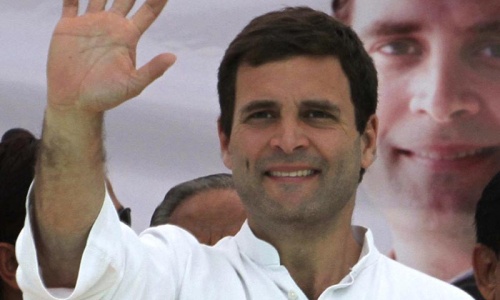INDIA’S elections are a statistician’s dream. Between April 7 and May 12 the Indian people will elect their 16th parliament (Lok Sabha). About 814 million of them are eligible to vote, 100 million more than for the previous parliamentary election in 2009. If about half of this population goes to the polls — the average turnout — then these 400 million voters will outnumber the total population of the US.
In 1952, when India elected its first parliament, the election commissioner Sukumar Sen called it “the biggest experiment in democracy in human history”. His judgement holds true today: the scale of the endeavour is remarkable and the enthusiasm of the population to elect their representatives is exemplary — particularly since the gains to the vast majority seem minimal. Indians continue to vote in high numbers because of pride in having secured the ballot through the freedom movement, the immense social pressure often exercised through caste and community channels, and the way in which resources are distributed by the electoral victor.
The incumbent for this election is the Congress Party-led United Progressive Alliance (UPA), which has been wracked by scandal and malaise. The UPA resembles an old shaggy dog that drifts in from the rain with its election manifesto dragged behind it like a wet blanket. Little about the UPA’s decade in office inspires confidence: the situation for the poor remains miserable, with a recent study showing that 680 million Indians experience deprivation; no number of malls and freeways will lift them out of poverty.
Increasingly, the UPA appears as the alliance of the well-heeled elite — less Gandhiji and Nehruji, the wags say, and more 2G (the telecom scandal) and CWG (the Commonwealth Games scandal). Its standard bearer, Rahul Gandhi, is the scion of the Gandhi family but without the charisma and intelligence of his grandmother (Indira Gandhi) and great grandfather (Jawaharlal Nehru). His is a pitiful task.
India’s main opposition over this decade has been the Bharatiya Janata Party-led National Democratic Alliance (NDA), a right-leaning group with a muscular and controversial leader, Narendra Modi. On economic issues the BJP and the Congress are identical, although the former says it will provide governance without corruption. The Achilles heel of the BJP is its toxic social agenda, which has been demonstrated in Modi’s home state of Gujarat, in its anti-Christian pogrom in Dangs in the 1990s and its anti-Muslim pogrom in 2002. The National Human Rights Commission of India found that the Gujarat state apparatus was complicit in the 2002 violence. Modi cleverly ignores this while putting himself forward as the champion of development. With the Congress unable to extricate itself from the quicksand of corruption, Modi’s feint impresses the middle class and the corporate elite.
What will save India from the Modi juggernaut is that it doesn’t have a presidential system. The people will elect 543 new members of parliament. The winning bloc will have to secure half the seats, not easy for the Congress (206 seats in the last parliament) or the BJP (117 seats). Since 1967, the Indian government has been formed out of alliances that include regional parties with deep roots in the Indian states. The old days of a single party ruling the roost are gone; regional parties are now able to dictate terms for the coalition. It is what moderates the extremism of the BJP — but only out of necessity. Modi’s toxicity has turned off core allies, leaving the BJP with the confidence of a lion but the alliances of a skunk. To complicate matters, a new anti-corruption party — the Aam Aadmi Party — promises to directly challenge the Congress and the BJP in their north Indian heartlands. If they are able to do so, it will strengthen the hand of the Third Front.
The Third Front, under various names, has made an appearance in each election since 1967. It brings together regional parties and the Left Front, which is often its backbone. They are united by their antipathy to both the Congress and the BJP, and their commitment to secularism and social justice. No easy common programme can be produced, largely because the parties in the Front differ hugely in their assessment of how the country should develop. Nevertheless, one of its contributions has been to move India in a federal direction to empower the states (Uttar Pradesh, India’s most populous state, has a population of 200 million, larger than most countries in the world).
In a country of India’s scale, federalism is a pathway to democracy. In a fractured parliament the Third Front could broker a government committed to social justice and secularism — as it did in 2004 when the Congress was pushed to create social welfare schemes such as the National Rural Employment Guarantee Act. When the Left broke with the Congress in 2009, the alliance that remained — the UPA — departed from any commitment to relief. Only when the Left is a vital part of the Third Front has this alliance been able to push for reforms to rebuild the hopes and lives of hundreds of millions of Indians who live below any given standard of a poverty line. Only when the Left and its allies are stronger yet will they be able to chart an alternative direction for India.
—By arrangement with the Guardian
















































It is commendable that the masses of India irrespective of caste, religion or creed have understood the casteist, communal and corrupt policies of the Congress government. The congress government partners have all had multiple instances of riots, blasts and communal issues, far greater than all BJP ruled states put together. After all the first pogrom was initiated by the Congress under Rajiv Gandhi that targeted Sikhs and Akalis.